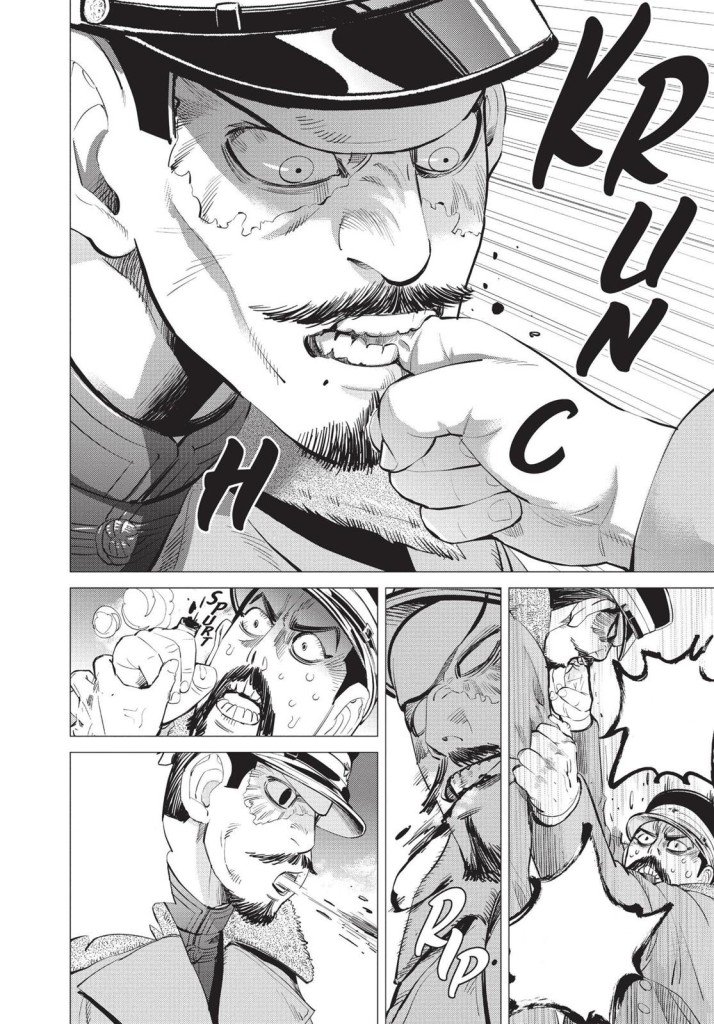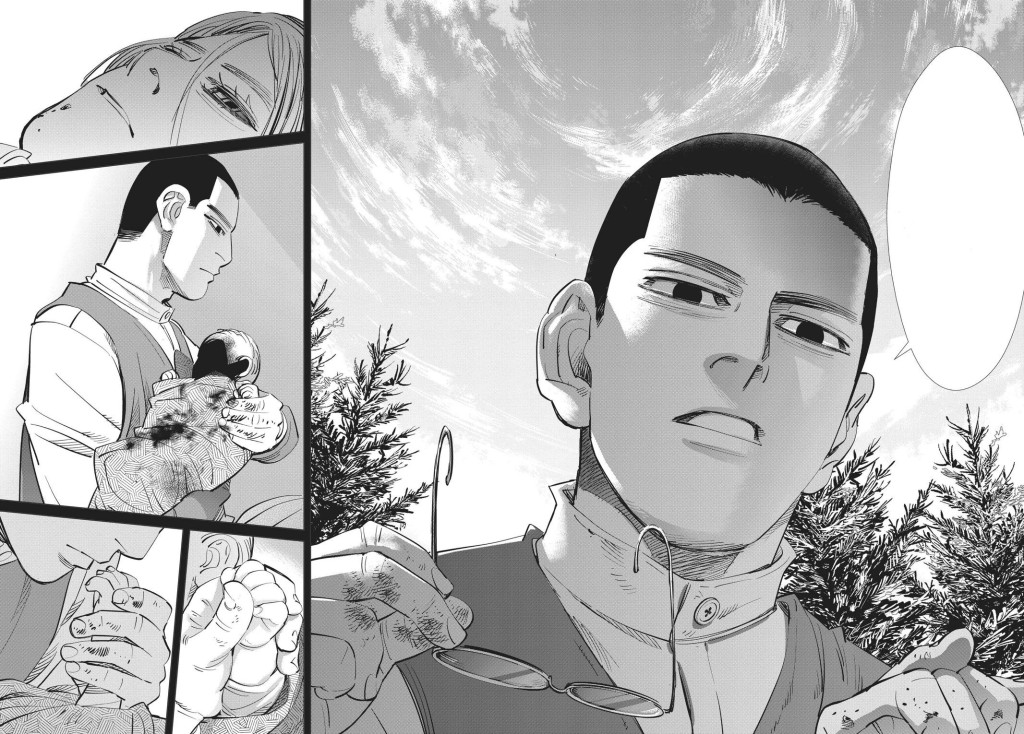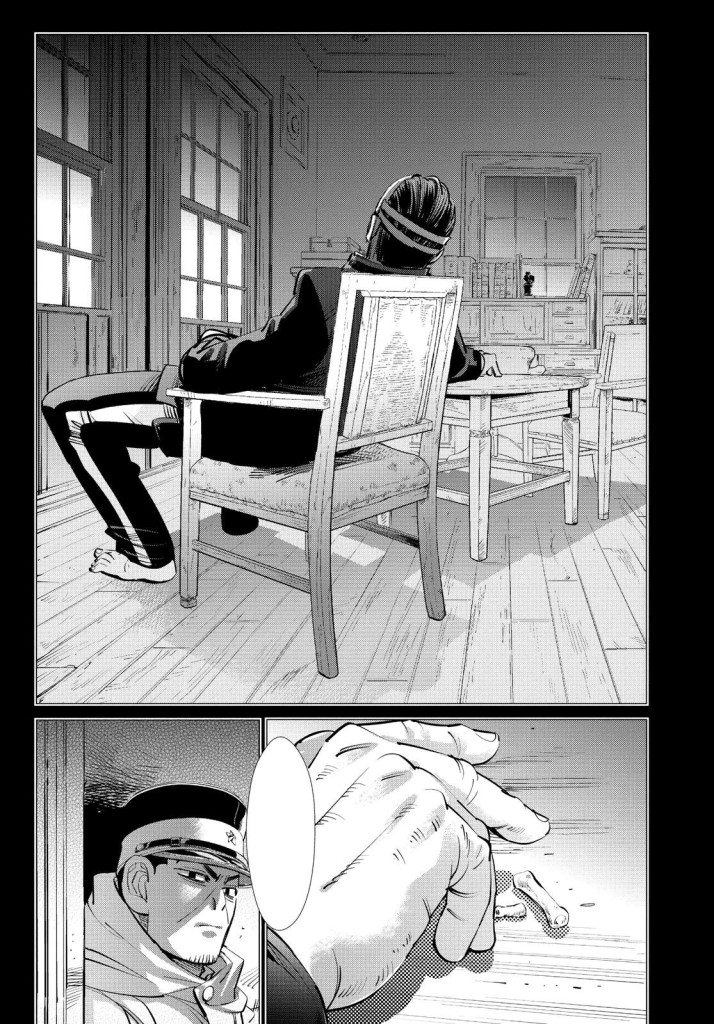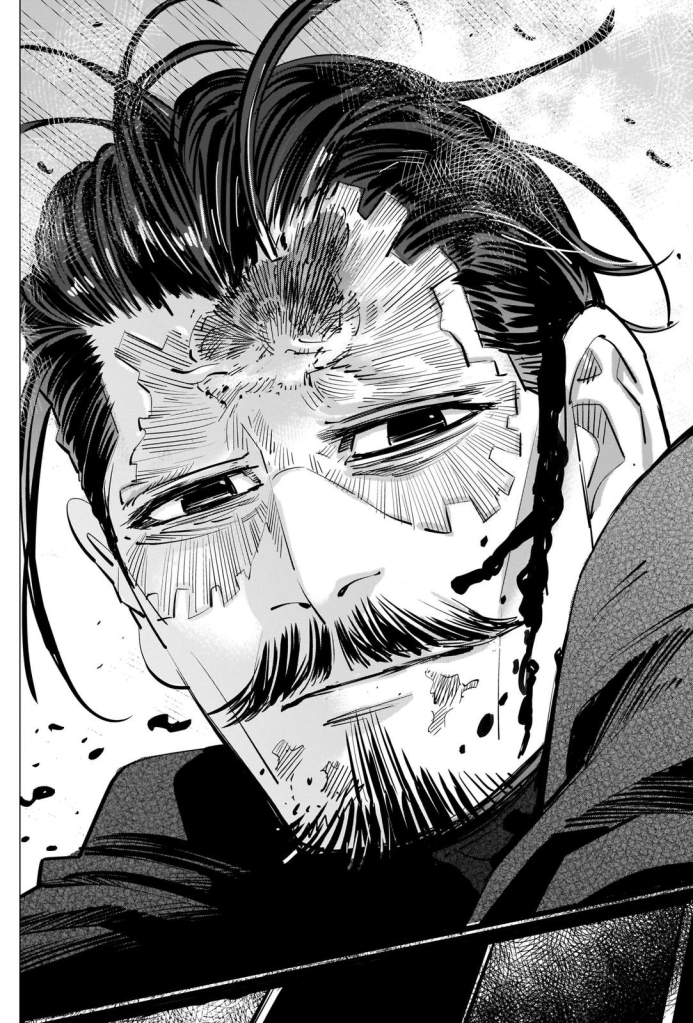At the end of the Russo-Japanese war, Japan won over control of some parts of the Liaodong Peninsula and southern Sakhalin, as well as having their control over the Korean Peninsula recognized. In the grand scheme of things, especially considering the near 80,000 casualties Japan suffered during the war, this would seem insufficient as war gains. This is the sentiment that Tokushirou Tsurumi houses. Set a few years after the war’s conclusion, the bitterness of the military is a driving force in Golden Kamuy’s main villain.
At the time, Japan was an emergent world power, spurred by its drastic modernization. To achieve this, there was a shift in the framework and mentality of the country. The Meiji government needed a more centralized control of power as it was educating its populace. Modern education and opportunities needed a counter-balance so that the Imperial government would not lose control. This extended to their implementation of a Parliament, as well as for their military. Instead of fostering loyalty for local lords, Japan adopted European nationalism.
This is the ideological landscape that Tokushirou Tsurumi is birthed in. When readers are first introduced to Tsurumi, he mentions how his skull was damaged in the Battle of Mukden, and stresses how many of their comrades died for nothing. Prior to World War 1, the Battle of Mukden was the largest land battle in the modern-era. Despite the win, the Japanese lost a lot of soldiers during that conflict alone. For the toll it cost, Tsurumi expected Manchuria as a reward for the nation.

He is a soldier who has repeatedly risked his life, and the lives of his command, in some of the most dangerous battles of the time. In his mind, there must be some meaning for all the work put in and death involved. Winning the land they fought on, adding it to the growing Japanese empire, and pushing further north is the only answer in his mind. This is what militant Ultranationalism is. Everything for the glory of the country and the Emperor.
This is everyone’s initial introduction to Tokushiro Tsurumi: a silver-tongued Ultranationalist with an insane temper. He is the Japanese Hokushin-ron war plan made manifest years before either of the World Wars, a clever implementation of history, but it does not make him exceptional. There are many mad nationalists within the medium. Even if the characters are not from real countries, their mentalities reflect the growing militarism and expansionist ideals of the 20th Century. This is especially true with villains, harboring Fascist and reactionary intentions that have to be dealt with.
What really sets Tsurumi apart is they way his characterization evolves once the story reaches the southern Sakhalin island. When the focus of the narrative shifts to Russia, Tsurumi’s real motives become clear. His backstory begins as a Japanese spy living in Vladivostok around the end of the 19th Century. At that point, his twisted nature was absent. He was a mild-mannered man, married to a Russian woman, and a father. It is unclear if his love for his family was entirely sincere or if parts of it were held up by his duty as spy, but that complexity immediately sours once his cover is blown.

A fight breaks out by his photography studio. In a single moment, after a shot fatally wounds his wife and daughter, his nationalism and love for his family converge in the worst ways. Any doubt readers may have had about his sincerity washes away when he picks up the body of his dead daughter and tenderly kisses her hand. This is grief. Tsurumi is a character in perpetual mourning. The family he loved died in Vladivostok due to the circumstances of his position. His duty contributed to their deaths, and he cannot properly process that. Instead of recanting the nationalism in him, it becomes the engine for his grief.
Therein lies the beauty of Tokushiro Tsurumi. To cope with the senseless death of his family, he infuses his own nationalism into it. In his mind, they died for the sake of Japan. They, along with all of the countless soldiers who will die on his watch, are integral parts of Japan’s rise as an empire. To honor them, Japan must expand. His family must rest in Japanese soil. He will make Vladivostok Japanese if he has to. His fury, his madness, and his Ultranationalism become a twisted performance of grief. As the embodiment of militant patriotism, he has no other choice but to grieve this way.
With that as his driving motivation, Tsurumi sets out to further the Japanese war plan. Nothing less than the complete capture of old Manchuria will appease his mourning. He manipulates everyone to further this agenda. His charisma and his stature are tools that he leverages to build one of the most capable and loyal cores within the military—a core that he would gladly sacrifice to get his way. His quest for the Ainu gold is just another means for him to push the military back into Chinese and Russian lands. From the hills of Port Arthur to the shores of Vladivostok, Tsurumi wants Japan to control everything to satisfy his own pain. Conquering the land will not bring his family back. It will not allow him to heal. These actions only further the wounds he is inflicting onto himself, but there can be no other way. Everything for the glory of the country and the Emperor.

The most naked moments of Tsurumi’s characterization are when he fiddles with the finger bones of his daughter and wife. After all those years and countless wars, he carries their bones with him to remind himself of what he lost. There is a gentleness to his anguish that he keeps private. It is an aspect of his grief that does not easily conform to the militant route he has taken. He denies the personal stakes of his ambition repeatedly. He lies to Tsukishima, he lies to Koito, and he lies to himself. Just as he refuses to acknowledge how his actions contributed to the deaths around him, he too refuses that sentimentality is what really defines his war path.
Tokushirou Tsurumi is one of the most beloved characters in Golden Kamuy. Amongst a cast full of some of the most well-written characters in modern manga, Tsurumi stands out as a maddened romantic mourning his family through war. The severity of his actions mixed with the restraint of his expression and the denial of his intentions paints a tortured soul who has no other path but to sink lower. Everything about him is calculated and intelligent, but also driven by raw emotions. Fans adore his flamboyance, but remember him for his bitter contradictions.

By the end of World War II, the Japanese empire was thoroughly disassembled. A majority of the territories they lost were from the Nanshin-ron efforts that colonized the lands by the South China Sea. However, they also lost the territories in the Liaodong Peninsula and southern Sakhalin. In 40 years, all of Tsurumi’s aspiration turned to ash. Japan never got close to taking Vladivostok. The Ultranationalist push resulted in one of the most resounding defeats in the Pacific theater. Even if Tsurumi survived the events of Golden Kamuy, even if his life and pains were not fictional, his ambitions would still end with the Japanese surrender.
His story is one of self-destruction, fighting in vain and screaming into the void. No guidance outside of love for country, no direction outside of warfare, and no companions outside of the dead. Tsurumi is an all-time great villain for his flaws. A mad animal who cannot accept and understand the internal turmoil in himself. A broken man who could not just admit that he missed his daughter and wife.